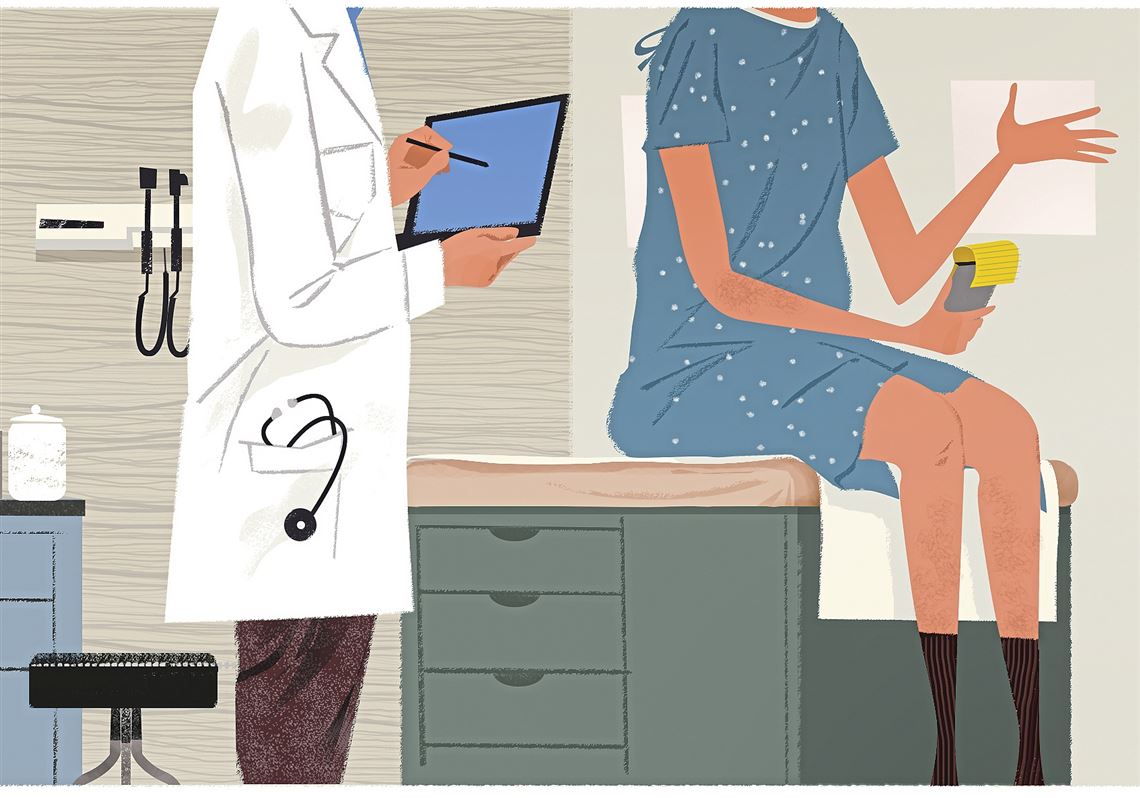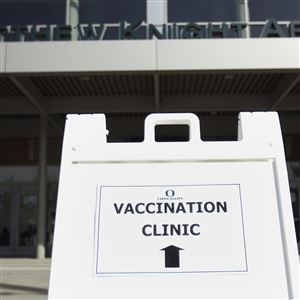Talking with your doctor isn’t always easy, but with preparation, you should be able to work with your doctor as a partner in your health.
Neil M. Resnick, chief of geriatrics at UPMC, said preparing for a doctor visit can be very different when you’re 55 compared to when you’re 90.
Aging itself has changed: “The average baby born today has 50 percent chance of making it to 100,” he said.
An active 65-year-old today might compare to a 45-year-old years ago and old age now doesn’t appear until the 70s, Dr. Resnick said. “It’s astonishing what has happened.”
Things that do speed up the clock include a sedentary lifestyle, smoking and obesity, he said, adding that healthy habits slow it down: such as sleeping at least six hours a night, being involved with family and friends and following a good diet.
Most people at 55, he said, have no chronic health problem. And truly older people wind up with less specific symptoms that may seem serious, but often are not, Dr. Resnick said.
For example, he said, losing energy and losing weight are much less likely to be symptoms of cancer in older adults.
“Weight loss at 45 is very specific … it’s likely to be one problem,” he said. “In an 80-year-old person with the same weight loss, there are likely to be multiple things contributing.”
Before a doctor's appointment, plan for what you'd like to discuss, such as concerns or changes to your health. Also, bring a list of medications you take and any aids to help you make the most of your visit.
“One thing is as you get older, the doctor has to broaden the approach in what might be causing symptoms,” Dr. Resnick said.
7 ways to prepare for a doctor’s visit
1. Make a list of your symptoms, both physical and emotional. Be sure to include when the symptom started and how often it happens, along with what makes it worse or better and if it prevents you from doing something.
2. List your medications, both prescription and over the counter as well as vitamins and supplements. Include the dose, how often you take it and if there are any side effects.
Dr. Resnick said people should bring in all of their medications: “Everything that goes into your mouth. … It allows us to see whatever they are on.” Electronic records are not as up to date as doctors would like, he said.
3. Be ready to tell your doctor about how you go through each day, your sleeping and eating habits, your activities and if you smoke or drink alcohol. Be open and honest.
4. Tell about any life changes since your last visit, such as divorce, death of a loved one, or changing where you live. They might be affecting your health.
5. Let the doctor know if you have seen any other health professional or gone to the hospital since your last visit.
New medications or after effects of a hospital visit could be contributing to the latest concerns, Dr. Resnick said.
6. Bring your insurance cards, names and phone numbers of your other doctors, and the phone number of the pharmacy you use. Also, bring your medical records if your doctor does not have them.
7. Consider bringing a family member or friend with you. They can help you remember what you want to talk about, take notes and help you remember what the doctor tells you.
Source: National Institute on Aging
Jill Daly: jdaly@post-gazette.com, 412-263-1596.
First Published: October 27, 2017, 12:00 p.m.


















